Related Research Articles
Midaq Alley is a 1995 Mexican film adapted from the novel by Egyptian writer Naguib Mahfouz, written by Vicente Leñero and directed by Jorge Fons. The film deals with complex issues such as gay and lesbian related topics, the lower-middle class of Mexico City, and the lives of many people.
Gatica, el mono is a 1993 Argentine drama film directed by Leonardo Favio. It is a biopic of Argentine boxer José María Gatica.
It won the Silver Condor for Best Film. The film was selected as the Argentine entry for the Best Foreign Language Film at the 66th Academy Awards, but Leonardo Favio asked the Instituto Nacional de Cinematografía (INC) to remove it as a nominee in order to protest in delays of the Congress' approval of the Foreign Films taxes.
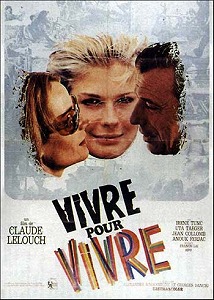
Live for Life is a 1967 French film directed by Claude Lelouch starring Yves Montand, Candice Bergen and Annie Girardot. The film won the Golden Globe for Best Foreign Language Film and was nominated for the Academy Award for Best Foreign Language Film. The film had a total of 2,936,035 admissions in France and was the 7th highest-grossing film of the year.

Tlayucan is a 1962 Mexican comedy film directed by Luis Alcoriza and based on a novel by Jesús Murciélago Velázquez. It was nominated for the Academy Award for Best Foreign Language Film.
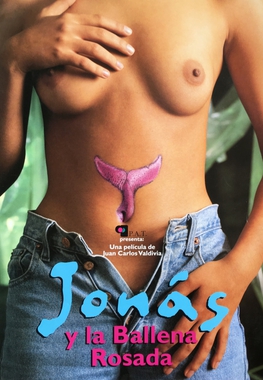
Jonah and the Pink Whale is a 1995 Mexican-Bolivian co-production film directed by Juan Carlos Valdivia. The film is based on the 1987 novel by José Wolfango Montes Vannuci The film focuses on the relationship of Jonas, a photographer and his romantic relationship with his sister-in-law.
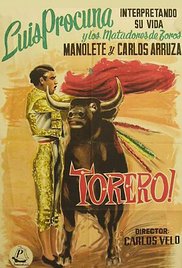
¡Torero! is a 1956 Mexican documentary film directed by Carlos Velo about Mexican bullfighter Luis Procuna. It was nominated for an Academy Award for Best Documentary Feature. The film was also selected as the Mexican entry for the Best Foreign Language Film at the 30th Academy Awards, but was not accepted as a nominee.
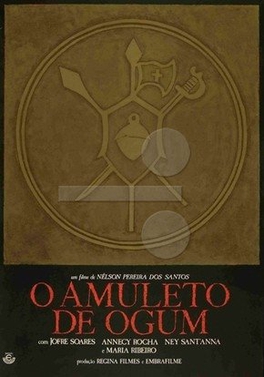
The Amulet of Ogum is a 1974 Brazilian drama film directed by Nelson Pereira dos Santos. It was entered into the 1975 Cannes Film Festival. It was also selected as the Brazilian entry for the Best Foreign Language Film at the 48th Academy Awards, but was not accepted as a nominee.

Life Is Most Important is a 1987 Mexican drama film directed by Luis Alcoriza. It was entered into the 15th Moscow International Film Festival. The film was selected as the Mexican entry for the Best Foreign Language Film at the 60th Academy Awards, but did not garner a nomination.

The Rumble of the Stones is a 2011 Venezuelan drama film directed by Alejandro Bellame Palacios. The film was selected as the Venezuelan entry for the Best Foreign Language Film at the 84th Academy Awards, but it did not reach the final shortlist.
The Paper Man is a 1963 Mexican drama film directed by Ismael Rodríguez. The film was selected as the Mexican entry for the Best Foreign Language Film at the 36th Academy Awards, but was not accepted as a nominee.
Black Wind is a 1964 Mexican drama film directed by Servando González. It was screened at the San Francisco Film Festival and the Melbourne International Film Festival. The film was selected as the Mexican entry for the Best Foreign Language Film at the 39th Academy Awards, but was not accepted as a nominee.
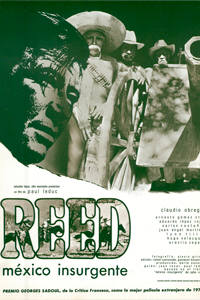
Reed: Insurgent Mexico is a 1973 Mexican drama film directed by Paul Leduc. It was selected as the Mexican entry for the Best Foreign Language Film at the 46th Academy Awards, but was not accepted as a nominee. The film is based on John Reed's book Insurgent Mexico, a collection of Reed's accounts of the Mexican Revolution.
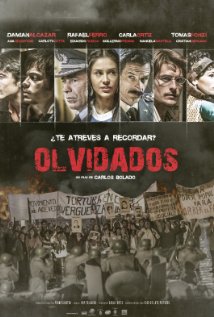
Forgotten is a 2013 Bolivian drama film written by Elia Petridis and directed by Carlos Bolado, and is based on the repression and killings associated with the U.S.-backed Operation Condor. It was selected as the Bolivian entry for the Best Foreign Language Film at the 87th Academy Awards, but was not nominated.
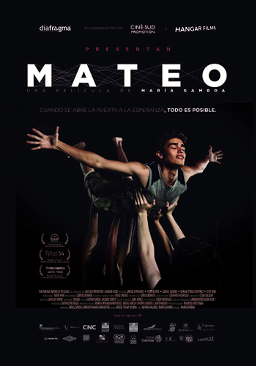
Mateo is a 2014 Colombian drama film directed by Maria Gamboa and starring Carlos Hernández. It was selected as the Colombian entry for the Best Foreign Language Film at the 87th Academy Awards, but was not nominated.
The Realm of Fortune is a 1986 Mexican drama film directed by Arturo Ripstein. The film was selected as the Mexican entry for the Best Foreign Language Film at the 59th Academy Awards, but was not accepted as a nominee.
The Cruel Embrace is a 1987 Belgian drama film directed by Marion Hänsel. The film was selected as the Belgian entry for the Best Foreign Language Film at the 60th Academy Awards, but was not accepted as a nominee.
Un embrujo is a 1998 Mexican drama film directed by Carlos Carrera. The film was selected as the Mexican entry for the Best Foreign Language Film at the 71st Academy Awards, but was not accepted as a nominee.

Tempestad is a 2016 Mexican documentary film directed by Tatiana Huezo. It was selected as the Mexican entry for the Best Foreign Language Film at the 90th Academy Awards, but it was not nominated.
References
- ↑ "Los Adolescentes (1968)". julissa.com. Retrieved 13 November 2011.
- ↑ Margaret Herrick Library, Academy of Motion Picture Arts and Sciences